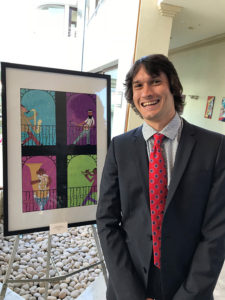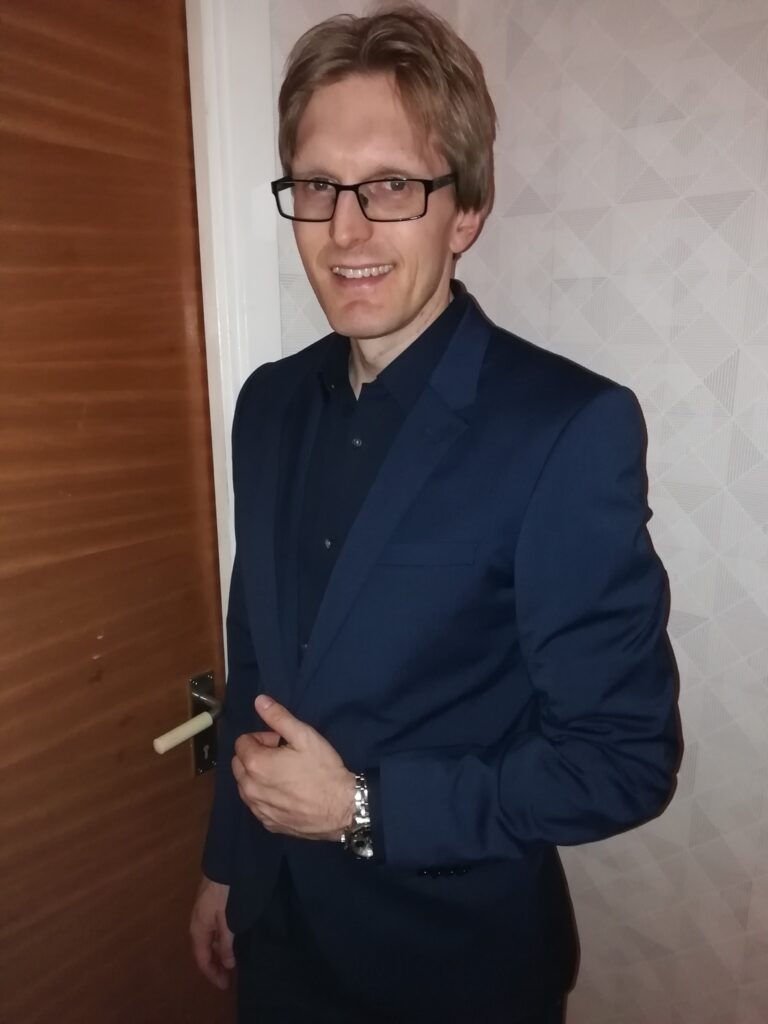I challenge anyone reading this to design or advocate for a reusable, recyclable, or compostable straw for hot drinks that is inexpensive, bendable, easy to clean, and poses no injury risk, allergy risk, or choking hazard.
By Peter Brechner
In August 2015, a plastic straw was found in a sea turtle’s nose. A marine biologist filmed the turtle in extreme distress as her team tried to remove the straw. People watched the video in outrage.
In response, cities and businesses began banning plastic straws. To many, this seems a reasonable way to save marine life without too much sacrifice. We people with disabilities disagree.
An unintended consequence of Seattle’s 2018 plastic straw ban was that, initially, many of us had no way to drink water, or any beverage, in public in the city.
An infographic created by Sarah Packwood, a Vancouver Island University student who has a disability, addresses each alternative straw type and why it is not suitable for those who have trouble holding, lifting, and/or drinking from a cup, glass, or mug. Mainly, none of the other straws can be bent into any desired position.

In addition, straws for hot drinks are expensive and often difficult to clean, and every sustainable straw material, except silicone, poses an injury risk or choking hazard.
A year later, most public places in Seattle have recognized the need to keep plastic straws on reserve for people with disabilities. However, plastic straw bans still harm us.
Having to ask for a plastic straw to simply drink water reinforces the public’s perception that we are dependent on others to look out for our needs, as well as our belief that the public thinks we are not “one of them.” We may be judged as having little respect for the environment, deeply hurting those of us for whom this isn’t the case. Also, not every business keeps plastic straws on hand for people who need them, putting the burden on us to purchase and bring our own straws.
Since plastic straw bans penalize us, why not fight to get rid of them? Because we run the risk of becoming scapegoats.
Picture unabated climate change. People dying in heat waves. Coastal regions flooding from sea level rise. Mountainous regions devastated by wildfires. Intense floods, severe storms, and droughts in the plains. Tropical rainforests dying, taking food, biodiversity, and a major carbon sink with them. Thawing permafrost destabilizing land in polar regions, releasing greenhouse gases into the atmosphere, and resuscitating ancient deadly diseases that we don’t have protection against.
The social impacts will be severe. People will tire of evacuating their homes and will migrate to the most climate-resilient locations, making those locales overcrowded and unsafe. Hostility toward incoming “climate migrants” will lead to armed conflicts. So will shortages and contamination of food and water.
Consider the implications for us. Are we prepared to evacuate our homes temporarily, let alone permanently? Can we be sure that future building codes for areas with thawing permafrost will take our needs into consideration? Are we all comfortable living in crowded areas? If food, water, or living space is rationed, will the unique problems posed to us be adequately addressed? Are we okay with people bullying us more, scapegoating us for climate change, or otherwise discriminating against us? No!
This is a scary yet realistic scenario, and people may blame us if we slow climate change mitigation efforts.
Even in a stable climate, it hurts to be the scapegoat. Imagine how much worse people will treat scapegoats as their anger intensifies! And we may become that scapegoat for the world’s biggest problem.
While plastic in the ocean is not climate change, it is a result of humanity’s disregard for our environment, as is the climate crisis. This disregard puts those of us in the disability community at a unique risk of social backlash. Most people don’t make a connection between environmental crises and the resulting social backlash, so they don’t see the value in taking and publicizing extreme personal measures to mitigate environmental crises.
When society introduces environmental laws which unintentionally discriminate against us, what should we do? Rather than try to strike down the laws or delay their implementation, I suggest we take a proactive stance. Make accommodations for our special needs sustainable, with minimal dependence on fossil fuels, plastics, palm oil, disposable items, or other environmentally harmful resources. Capture the media’s attention with our efforts. Demand that others follow our lead.
Our first step is inventing and popularizing a new type of sustainable straw that will serve all our needs. Countless steps will follow. Let’s get to work.
***

My name is Peter Brechner. I was diagnosed with autism at the age of 2. I am 23 years old and will be attending the University of Oklahoma for graduate school this fall, studying meteorology. I attended the University of Washington for undergraduate school and received degrees in meteorology and climate, as well as a minor in applied mathematics. My biggest wish is for the world’s population to slow climate change, respond to its impacts, and prepare for emergencies in ways which respect people with disabilities. During my spare time, I enjoy walking, arts and crafts, exploring nature, seeing friends, and drafting ideas for ways to promote sustainability.









EVERIHOLDER PRODUCTS LLC, of Anaheim, California, is (among others) selling Compostable Straws made from renewable, plant-based material. I found some in a store whose name starts with W.
This is a view I was unaware of, incredibly articulate and well written. It made me look at the issue with new eyes.
A very realistic scenario indeed.
Always being the scapegoats puts a toll on anyone’s ecological and environmental resources.
First to be persecuted; last to be respected.
It doesn’t have to be this way.
I wondered if a very flexible clay could do the bending? Or some other element in the laboratory?